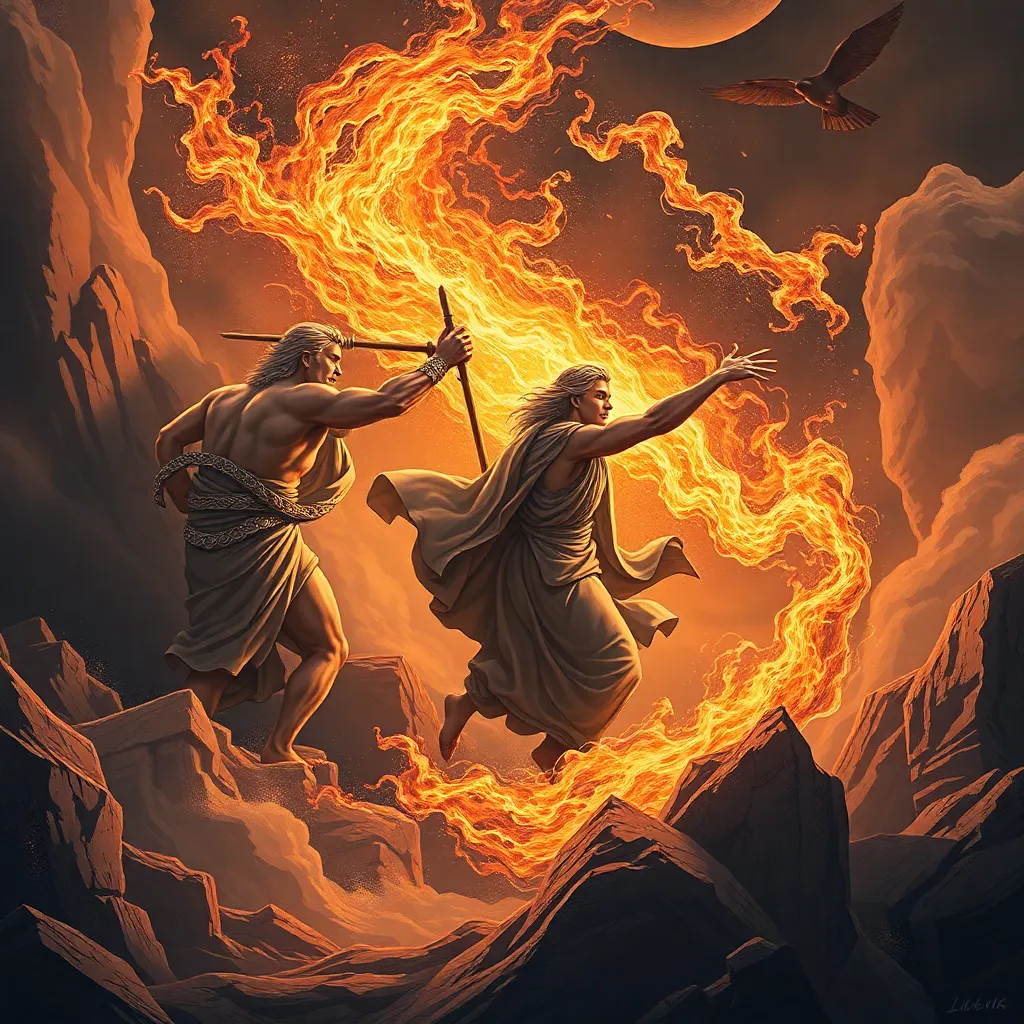The Iliad’s Exploration of the Nature of Fate
I. Introduction
“The Iliad,” attributed to the ancient Greek poet Homer, is one of the most significant works in Western literature. This epic poem narrates the events of the Trojan War, focusing on the hero Achilles and his internal struggles amidst the chaos of battle. Its themes of honor, glory, and the human condition resonate across centuries, influencing countless works of art and literature.
In ancient Greek culture, fate (or “moira”) is a central concept that signifies a predetermined course of events that is beyond human control. It is often viewed as an inescapable force that governs the lives of mortals, intertwining with the will of the gods. This article aims to analyze how “The Iliad” explores the complex concept of fate, revealing its implications on characters and the narrative itself.
II. The Role of the Gods in Shaping Fate
The gods in “The Iliad” play a crucial role in shaping the destinies of mortals. Their interventions often alter the course of events, illustrating the belief that divine beings have authority over human lives.
- Divine Intervention: Throughout the epic, gods frequently intervene in human affairs, either to aid their favored champions or to punish their enemies. This reflects the belief that fate is not solely predetermined but can be influenced by divine wills.
- Key Gods and Their Influence:
- Athena: Goddess of wisdom and war, often aids the Greeks, particularly Odysseus.
- Apollo: Supports the Trojans, punishing the Greeks for Agamemnon’s slight against his priest.
- Zeus: The king of the gods, maintains a balance between fate and personal choice, ensuring that the overall destiny unfolds as prophesized.
Specific instances where gods alter human fate are abundant in “The Iliad.” For example, when Achilles withdraws from battle, it is the goddess Thetis who appeals to Zeus to turn the tide in favor of the Trojans, showcasing her influence over the fate of both sides.
III. The Heroic Code and Individual Agency
The heroic code in ancient Greece emphasized values such as honor, bravery, and personal glory. Heroes were expected to act in accordance with this code, even when faced with the inevitability of fate.
- Tension Between Choice and Fate: Characters in “The Iliad” often grapple with their sense of agency against the backdrop of predetermined destiny. This tension highlights the struggle between individual desires and the overarching fate that awaits them.
- Case Studies:
- Achilles: His choice to withdraw from battle stems from a personal affront but ultimately leads to disastrous consequences, illustrating the limits of personal agency.
- Hector: As a defender of Troy, Hector chooses to confront Achilles despite knowing the prophecy of his death, embodying the heroic ideal even in the face of fate.
IV. The Concept of Time and Fate
In Greek thought, time is often understood in two ways: Chronos (chronological time) and Kairos (the opportune moment). These concepts significantly affect how characters perceive and respond to fate in “The Iliad.”
- Chronos vs. Kairos: While Chronos represents the linear progression of time, Kairos symbolizes the critical moments where choices can lead to significant outcomes. This duality is evident in how characters navigate their fates.
- Prophecy and Foreknowledge: The role of prophecy is paramount in shaping character decisions. For example, Achilles is forewarned of his fate, leading him to confront his mortality and the choices he makes on the battlefield.
V. Fate as a Source of Conflict
Fate serves as a catalyst for conflict in “The Iliad,” driving both external battles and internal struggles among characters. The Trojan War itself is rooted in themes of fate.
- Catalyst for the Trojan War: The war is initiated by the fateful events surrounding the judgment of Paris, which is heavily influenced by the gods, showcasing the interplay of divine will and human actions.
- Internal and External Conflicts: Characters like Achilles face internal dilemmas regarding honor and destiny, while external conflicts arise from the inevitability of their fated outcomes.
The narrative is propelled forward by the inexorable pull of fate, as characters confront their destinies, leading to tragic outcomes that resonate with the audience.
VI. Mortality and the Acceptance of Fate
The relationship between fate and human mortality is a recurring theme in “The Iliad.” Characters are often confronted with their fated deaths, leading to profound reflections on life and destiny.
- Responses to Fated Deaths: Many characters exhibit varying degrees of acceptance regarding their mortality. Achilles, for instance, struggles with the knowledge of his impending death yet chooses to embrace his fate to achieve everlasting glory.
- Philosophical Implications: The acceptance of fate raises questions about the human experience, prompting characters and readers alike to contemplate the nature of existence and the role of choice.
VII. The Legacy of Fate in “The Iliad”
The exploration of fate in “The Iliad” has left a lasting legacy on literature and philosophy. Its themes continue to resonate, inspiring modern interpretations and discussions.
- Influence on Later Works: “The Iliad” has profoundly influenced subsequent literature, shaping narratives around fate and free will in works by writers such as Virgil and Dante.
- Modern Interpretations: Contemporary discussions about fate often reflect the themes presented in “The Iliad,” as philosophers and writers explore the balance between destiny and individual agency.
The enduring relevance of fate in modern contexts underscores its significance in understanding human behavior and the nature of existence.
VIII. Conclusion
In conclusion, “The Iliad” serves as a profound exploration of fate, merging the divine, the heroic, and the mortal into a complex narrative. The interplay of fate, choice, and the human experience is central to its themes, revealing the philosophical dilemmas faced by its characters.
By examining the various dimensions of fate within the epic, we gain insights into not only the ancient Greek worldview but also the broader human condition. Ultimately, understanding fate as depicted in “The Iliad” allows us to reflect on our own lives, choices, and the forces that shape our destinies.




